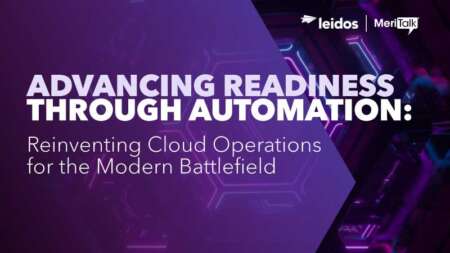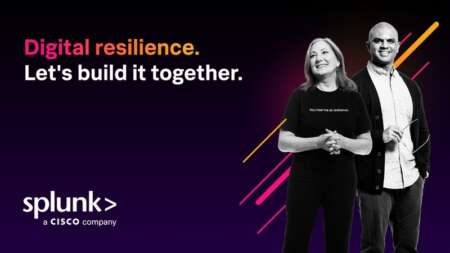Automation is accelerating how the Defense Department’s (DOD) – rebranded as the War Department by the Trump administration – builds, secures, and operates cloud environments, senior Leidos officials said during a recent webinar, underscoring how automation is reducing approval bottlenecks, strengthening security operations, and preparing defense networks for machine-speed threats. […]
The Naval Postgraduate School (NPS) is building an artificial intelligence (AI)-ready force the way a teaching hospital trains clinicians: rigorous classroom learning, side-by-side practice on world-class technology, and real problems. […]
Across mission networks and insider risk programs, practitioners are shifting from reactive firefighting to proactive, risk-aware operations, elevating signal over noise so leaders can act faster and with more confidence. […]
As federal agencies modernize IT systems and prepare for artificial intelligence (AI) compute demands, Supermicro is working with NVIDIA to expand efforts to help the government rapidly deploy purpose-built “AI factory” infrastructure. […]
At Splunk .conf25, leaders highlighted a significant shift toward artificial intelligence (AI) agent-assisted operations, emphasizing how machine data and observability are becoming critical control planes for faster, safer decision-making across public sector SecOps, ITOps, and broader mission objectives. […]
Public sector and higher education leaders are actively developing innovative data analytics and cybersecurity workforce models to combat escalating fraud and cyber threats. A key theme emerging from the recent Splunk conf.25 event in Boston was the critical role of observability practices – drawing insights from both public and private sectors – in ensuring the continuous availability and resilience of essential government and educational services. […]
The second era of artificial intelligence (AI) is upon us, in which we move from chatbots that intelligently answer our questions to agents that accomplish tasks autonomously, or nearly so, Cisco President and Chief Product Officer Jeetu Patel noted at the recent Splunk .conf25 in Boston. […]
In the run-up to its recent conf.25 event, Cisco – through Splunk – underscored a pragmatic path forward: Put robust controls and oversight around AI systems, treat machine data as a strategic national asset, and deploy intelligent assistants that enhance efficiency and reduce operational burdens. The result, Splunk Senior Vice President and General Manager Kamal Hathi articulated, will be a profound transformation – a clear shift from human-centric workflows to agent-assisted operations across government and education. […]
MeriTalk recently sat down with Suri Durvasula, vice president, federal, Dell Technologies, to discuss the findings of the Tech Tonic: FY26 Federal CIO Forecast. Our conversation covered lots of ground: shifts in federal IT priorities, modernization while reducing costs, the foundation for effective AI implementation, and why industry should come together to accelerate government progress. […]
Artificial intelligence (AI) has climbed to the top of federal chief information officers’ (CIOs’) priority lists for fiscal year 2026, but leaders warn that without sustained funding and modern infrastructure, AI progress will stall, according to MeriTalk’s second annual Federal CIO Forecast. The findings, released today, draw on surveys and interviews with 10 federal CIO offices conducted in July and August. […]










